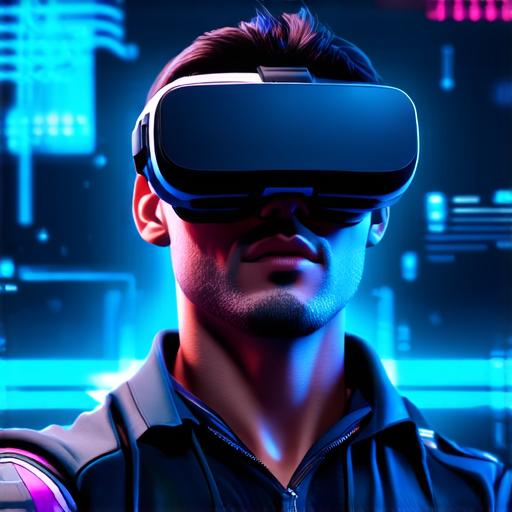
How do you utilize virtual reality?

Virtual reality (VR) technology has come a long way since its inception, and it’s now possible for individuals and organizations alike to experience immersive environments that simulate real-world situations.
1. Immersive Learning
Virtual reality technology has the potential to revolutionize the way students learn by providing a more interactive and engaging environment. With VR, students can experience real-world scenarios in a safe and controlled environment. This allows them to learn about different subjects and concepts in a more hands-on manner. For example, medical students can practice surgeries, while history students can explore ancient civilizations.
2. Gaming and Entertainment
Virtual reality technology has also transformed the gaming industry, allowing users to immerse themselves in new worlds and experiences. VR games can be played on a variety of devices, including headsets, consoles, and PCs. Some popular VR games include Beat Saber, Half-Life: Alyx, and Job Simulator.
3. Virtual Meetings and Collaboration
Virtual reality technology has also made it possible for people to collaborate and communicate in virtual environments. This can be particularly useful for remote teams, as they can gather in a virtual space and interact as if they were in the same room. Additionally, VR meetings can be used for training and simulation purposes. For example, flight simulators can be used to train pilots and air traffic controllers.
4. Virtual Shopping and Tourism
Virtual reality technology has also made it possible for people to shop and experience tourism from the comfort of their own homes. With virtual shopping experiences, users can try on clothes and see how they look before making a purchase. Additionally, VR tours allow users to explore different locations without having to physically travel there.
5. Enhanced Training and Simulation
Virtual reality technology has also made it possible for organizations to provide more effective training and simulation experiences. For example, pilots can practice flying in a virtual environment before taking to the skies, while military personnel can simulate different scenarios in a safe and controlled environment.
In conclusion, virtual reality technology has many applications beyond just gaming. It can be used for learning, entertainment, collaboration, shopping, tourism, and training purposes. With VR, users can experience immersive environments that simulate real-world situations, allowing them to learn and grow in a more interactive and engaging manner.


